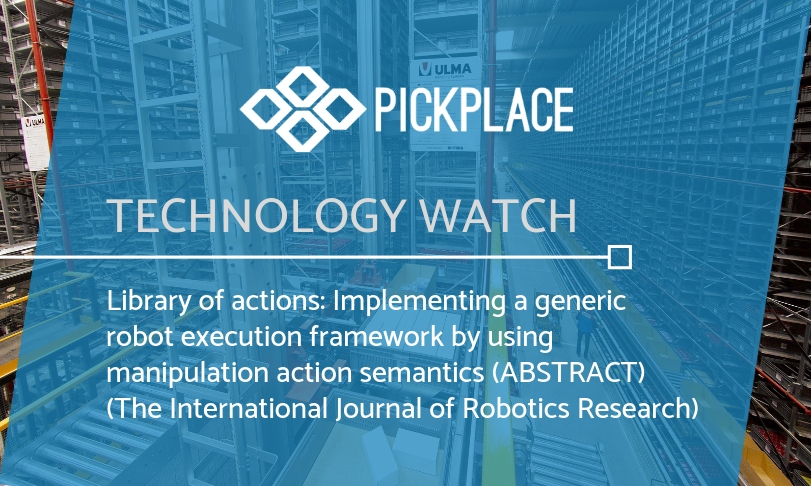Source: The International Journal of Robotics Research
Authors: Mohamad Javad Aein, Eren Erdal Aksoy, Florentin Wörgötter
Publication: First published May 29, 2019
When a robot has to imitate an observed action sequence, it must first understand the inherent characteristic features of the individual actions. Such features need to reflect the semantics of the action with a high degree of invariance between different demonstrations of the same action. At the same time the machine needs to be able to execute the action sequence in any appropriate situation.
In this study, we introduce a new library of actions, which is a generic framework for executing manipulation actions on robotic systems by combining features that capture action semantics with a framework for execution. We focus on manipulation actions and first create a generic representation consisting of symbolic and sub-symbolic components. To link these two domains we introduce a finite state machine allowing for sequential execution with error handling. The framework is developed from observing humans which provides us with a high degree of grounding.
To quantitatively evaluate the scalability of the proposed approach, we conducted a large set of experiments involving different actions performed either individually or sequentially with various types of objects in different scene contexts.

